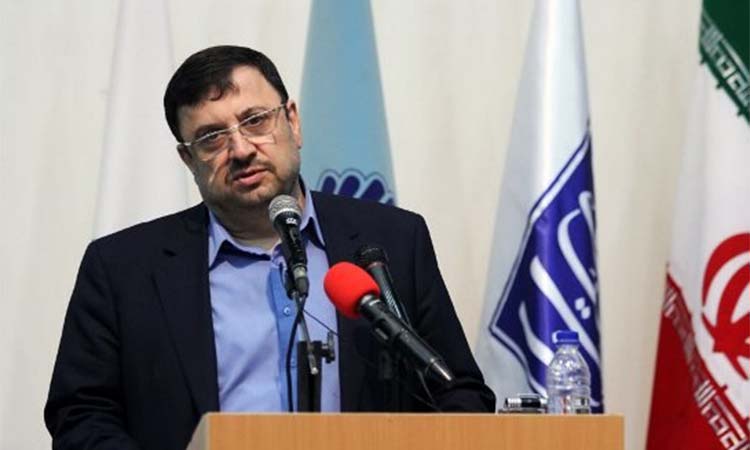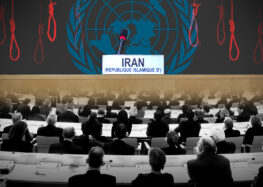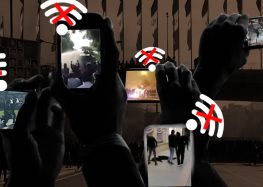Iran’s Requirement for Internet Users to Verify Their Identity Would Further Erode Privacy Rights

Ongoing announcements by Iranian officials that every citizen in the country will soon be required to verify their identity to use the internet indicates that the state is moving towards further eroding individual privacy rights.
“Identification is one of the most important issues in building the foundations of the country’s cyberspace, and everyone’s identity must be verified,” said Abolhassan Firouzabadi, the secretary of Iran’s Supreme Cyberspace Council, on November 12, 2017.
“Every Iranian in cyberspace must have a smart [digital] identity or else she or he will not be able to use banking, medical, travel or other electronic services,” he said.
The internet and social media apps are heavily restricted and censored in Iran. Some 44 percent of the country’s 80-plus million people had internet access in 2016, according to the UN’s International Telecommunication Union. As a result, Iranian state policies and technical initiatives have increasingly focused on strengthening state control over the internet.
Requiring online users to verify their identity was mentioned as a potential requirement on August 28, 2016, by Deputy Telecommunications Minister Nasrollah Jahangard, during the launch of the first phase of Iran’s domestic internet, the National Information Network (NIN).
According to Jahangard, when NIN becomes fully operational, users will be required to input a unique code, such as their National Identity Number, in order to be verified and use the network.
Although Iranian officials have not revealed the exact process through which users would verify their identity, the country’s security establishment would welcome the ability to more easily identify and locate citizens accused of wrongdoing.
It remains unclear whether users would be able to hide their identities behind virtual private networks (VPNs), which are currently used to bypass state censorship controls and protect users from state cyber monitoring.
From “Smart Filtering” to “Internet Classification”
Iranian officials had previously suggested introducing a filtering system that would restrict online content to a verified person’s profession, age, and needs as established by the state.
“Our plan is to make filtering more focused, to verify the identity of users when they access the internet, to make more use of software developed by native startups, and provide access to the internet that suits individual profiles,” said Deputy Telecommunications Minister Mahmoud Khosravi on December 14, 2014.
As an answer to demands from within the state to curtail freedom of expression in cyberspace, “smart filtering” was introduced by President Hassan Rouhani’s administration in December 2014.
“There was pressure on us to block one of these social networks, but instead we were successful in purifying its content,” said then-Telecommunications Minister Mahmoud Vaezi on December 27, 2014.
“The intention behind smart filtering is to avoid blocking websites and allow people to access content that is not immoral,” he added. “Our plan will only block the immoral content that makes up just 10-15 percent of the content on social media and people can access the rest.”
However, internet experts and some officials have expressed doubts about the effectiveness of “smart filtering.” Hardliners, for their part, believe it is not “smart” enough.
“The smart filtering system developed by the Telecommunications Ministry has not met the people’s expectations,” said Abdolsamad Khorramabadi, the secretary of the Taskforce to Determine Instances of Criminal Content, on September 6, 2015.
“Despite all the positive propaganda from the ministry, its performance has been unacceptable,” he added.
In July 2017, Khorramabadi, who is also Iran’s deputy prosecutor general, threatened to take Vaezi to court for his alleged refusal to block thousands of channels on the Telegram messaging application.
The failure of smart filtering has resulted in Iranian authorities focusing on a new idea called “internet classification.”
“The internet classification plan will be implemented so that certain centers such as those involved in research and cultural activities, universities and the media could have access to a vast portion of the internet,” said Amir Khorakian, the deputy director of Iran’s National Cyberspace Center, on November 13, 2017. The internet will be divided based on the users’ needs and projects.”
The first phase of “internet classification” was ostensibly launched on October 29, when Telecommunications Minister Mohammad Javad Azari Jahromi claimed journalists licensed by the Culture and Islamic Guidance Ministry would soon be able to access an uncensored version of the internet.
Jahromi did not provide any details about his announcement.






